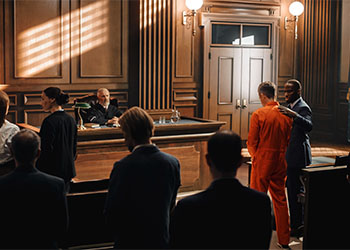Motions to Suppress: Getting Evidence Excluded
April 16, 2024
 Facing criminal charges can be a surreal and intimidating experience, particularly when the prosecution stacks the deck against you with evidence they intend to use in court. If you find yourself in this situation, you may benefit from understanding the procedure and the importance of 'motions to suppress.'
Facing criminal charges can be a surreal and intimidating experience, particularly when the prosecution stacks the deck against you with evidence they intend to use in court. If you find yourself in this situation, you may benefit from understanding the procedure and the importance of 'motions to suppress.'
From my years of experience, both as a defense attorney and a former prosecutor, I understand the pivotal role that evidence plays in a criminal case. From drug possession charges to more serious allegations, having evidence suppressed can often mean the difference between a conviction and an acquittal. Challenging and seeking the exclusion of evidence requires a strategic approach grounded in a deep understanding of the law and a commitment to advocating for the rights of my clients.
As your criminal defense lawyer, I bring not just my legal acumen but also my dedication to ensuring that you receive a defense that is thorough, personalized, and effective. Your future and freedom are of immense importance, and I am here to leverage every legal avenue available to protect them. Reach out to my firm, the Law Office of Joseph M Pacella, if you're facing criminal charges and awaiting trial.
What Is a Motion to Suppress?
Before we explore other aspects of the motion, it's important to understand what it is at its core. A motion to suppress is a request made during a criminal case by a defense attorney to the presiding judge. The essence of this motion is to exclude any evidence that was obtained illegally or in violation of the defendant's Constitutional rights.
This motion relies on the Fourth Amendment, ensuring the 'right of the people to be secure in their persons, houses, papers, and effects, against unreasonable searches and seizures.'
As an example, perhaps a client was arrested for theft after being found with stolen property. The only reason the police approached and searched the individual was due to a vague description that matched half the people in the area, without any concrete evidence linking our client to the crime. We might argue that this stop and subsequent search lacked reasonable suspicion, thus violating our client's Fourth Amendment rights. Upon filing a motion to suppress the evidence obtained from the search, the court might agree. The lack of lawful justification for the initial stop could render the evidence inadmissible, leading to the dismissal of the charges against our client.
Reasons You May Want a Motion to Suppress
Understanding when and why to use this motion is crucial. If the evidence in question was garnered through an illegal search and seizure, any competent criminal defense attorney would advise their client to file a motion to suppress.
An illegal search and seizure occurs when there isn't a legal basis for a police officer to conduct a search. For instance, if the police enter your home without a warrant, without permission, or if they stop and frisk you without reasonable suspicion, the evidence they collect could be deemed inadmissible.
What Is the Process for Filing a Motion to Suppress?
Filing a motion to suppress isn't merely a tactic; it's a strategic choice. To begin the process, the defense attorney must file a written motion with the court. This motion details the facts of the case and the reasons why the evidence in question should not be admissible in court.
The motion must be accompanied by a memorandum of law supporting the legal argument that the evidence was obtained unlawfully. Here, the defense attorney provides precedents and legal interpretations that bolster their motion.
What Evidence Is Subject to Exclusion?
The types of evidence that can be excluded through a successfully filed motion to suppress are broad. Any physical evidence, such as drugs, weapons, or stolen goods, can be suppressed if it is obtained through an illegal search and seizure.
Suppression can also extend to verbal statements and confessions made by the defendant if the circumstances surrounding the obtaining of the statements were unconstitutional.
Seek an Experienced Defense Attorney
Handling motions to suppress requires a deep understanding of criminal procedure and a keen sense of the rights afforded to the accused.
When choosing a defense attorney, look for someone who has a track record of success with suppression motions. This expertise can significantly impact the strength of your case and your potential for a successful defense.
I Can Protect Your Rights in the Court of Law
Motions to suppress have the potential to change the trajectory of a case. If you believe that any evidence against you was obtained in violation of your rights, it is in your best interest to consult with a defense attorney about your options.
Remember, it is not the job of the prosecution to uphold your rights—that responsibility lies with your defense attorney. Taking the initiative to explore motions to suppress could be the turning point in your case.
My extensive experience on both sides of the courtroom gives me a unique perspective on what arguments are most likely to resonate with the prosecution and the court. If there’s an opportunity to have evidence excluded as part of a plea negotiation that serves your best interest, I’m prepared to advocate fiercely on your behalf. At the Law Office of Joseph M Pacella, I proudly serve clients in Springfield and the surrounding areas throughout Western and Central Massachusetts, including Northampton, Westfield, Amherst, and Palmer.
